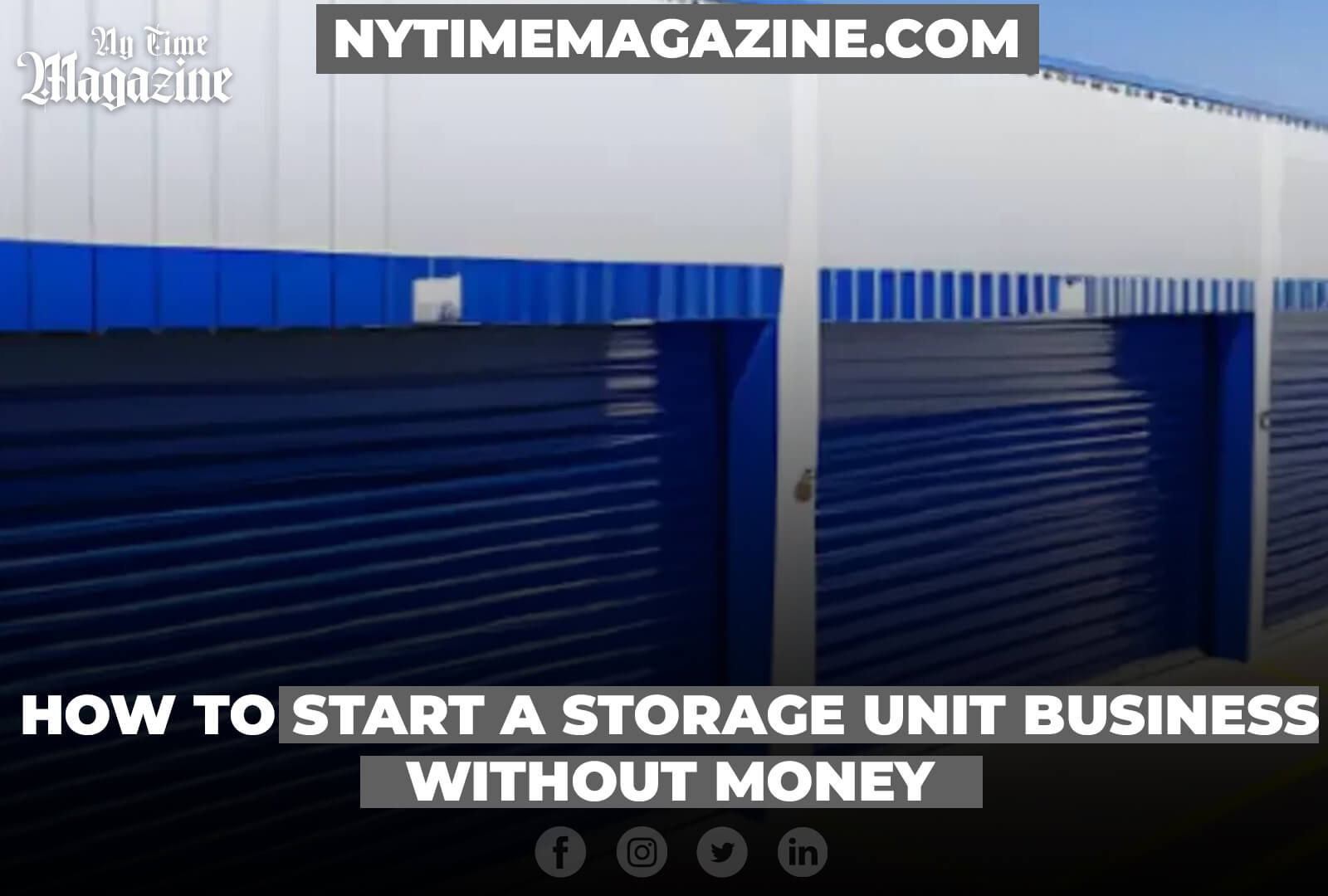Contents
Introduction
If you’re eager to start a storage unit business but don’t have access to significant capital, fret not. While it’s true that starting a storage unit business can be capital-intensive, there are strategies to get you started even with limited funds. In this guide, we’ll outline steps to kickstart your self-storage business without breaking the bank.
Understanding the Self-Storage Business
Self-Storage Business: A Lucrative Venture
Before you embark on your journey to start a storage unit business, it’s essential to understand the potential profitability of this industry. Self-storage businesses are known for their stability, with profits remaining relatively steady regardless of economic fluctuations. The industry typically boasts an average profit margin of at least 41%, making it an appealing option for entrepreneurs looking to start a self-storage business.
Your potential earnings will depend on various factors, including the size and location of your facility, rental rates, and operational efficiency. To maximize your profits, thorough research is essential. Let’s delve into the research and planning required before starting your self-storage business.
Research and Planning
Market Research: A Key Step in Starting a Self-Storage Business
Before you start a self-storage business, conducting comprehensive market research is crucial. Your goal is to determine if your business can generate enough revenue to cover operating expenses and yield a profit. Consider the following aspects:
- Demographics of potential customers within a 1-5 mile radius, which is your ideal market size for self-storage businesses.
- Median income of your target market, typically middle-income brackets with ages ranging from 20 to 50.
- Projected population growth in your chosen location – a vital factor for those looking to start a storage unit business.
- Current population (aim for at least 20,000 people in rural areas and 100,000 in urban settings) – a critical consideration when you start a self-storage business.
- Daily vehicle traffic, as many storage unit businesses rely on drive-by customers.
- Assess the competition by identifying existing storage facilities, their occupancy rates, and any new businesses in the area. Knowing your competition is essential when you start a self-storage business.
Industry Overview: Insights for Starting a Self-Storage Business
Explore key industry metrics such as projected rental rates, expenses, income, and property values. This information will help you fine-tune your business strategy when you start your storage unit business.
Business Plan: A Blueprint for Success
Create a comprehensive business plan that outlines your mission and vision, business and ownership structure, employee roles and responsibilities, revenue streams, SWOT analysis, and market analysis. A well-structured plan will not only help you secure funding but also guide your business when you start a self-storage business.
Steps to Starting a Self-Storage Unit Business
Starting a Self-Storage Business: Key Steps to Success
- Find a Suitable Location for Your Self-Storage Business: The location of your self-storage business is crucial. Look for high-traffic areas with a mix of residential and commercial enterprises. A location near a major intersection is ideal when you start a storage unit business. Assess competition and choose a location that allows your business to stand out.
- Develop a Business Plan for Your Self-Storage Business: Craft a business plan tailored to your specific needs, outlining your target clients, marketing strategies, and financial projections. A well-structured plan will not only help you secure funding but also guide your business when you start your self-storage business.
- Secure Funding for Your Self-Storage Business: While self-storage businesses can be capital-intensive, there are options for those with limited capital. You can apply for a small loan or explore gig work opportunities such as driving for a rideshare service or completing tasks on platforms like Pawns.app. Use these earnings to finance your initial setup when you start your storage unit business.
- Obtain Necessary Licenses and Permits for Your Self-Storage Business: Ensure you have all the required licenses and permits before launching your self-storage business. This includes certificates of occupancy, small business permits, service contracts, and any other local legal requirements when you start a storage unit business.
Pros and Cons of Owning a Self-Storage Business
Owning a Self-Storage Business: Weighing the Pros and Cons
Pros:
- Passive Income: Self-storage businesses offer passive income streams, requiring minimal day-to-day operations when you start a self-storage business.
- High Demand: The demand for self-storage units remains consistently high, ensuring steady profits when you start a storage unit business.
Cons:
- Initial Investment: Launching a self-storage business can necessitate substantial upfront costs for land, construction, and security measures.
- Security Concerns: Self-storage facilities are susceptible to theft and vandalism, necessitating investments in advanced security systems to protect customers’ belongings when you start your self-storage business.
FAQs
1. What Is the Typical Cost of Starting a Storage Unit Business?
- Starting a storage unit business can vary significantly in cost. It depends on factors like location, land acquisition, construction, and security measures. On average, it may require an initial investment ranging from $50,000 to $500,000 or more.
2. How Can I Find the Ideal Location for My Storage Unit Business?
- The location is critical. Look for areas with high population density, good visibility, and accessibility. Consider conducting a feasibility study to identify the best spot, factoring in local competition and potential customer demographics.
3. What Legal Requirements Do I Need to Meet When Starting a Storage Unit Business?
- Legal requirements vary by location, but typically include obtaining permits, licenses, and adhering to zoning regulations. You’ll also need to draft rental agreements and comply with any state or local storage laws.
4. How Do I Market My Storage Unit Business to Attract Customers?
- Effective marketing is key. Utilize online platforms, social media, and local advertising. Offering promotions and referral incentives can also help attract new customers to your storage facility.
5. What Security Measures Are Necessary to Protect Customer Belongings?
- Security is paramount. Invest in modern surveillance systems, access control, and adequate lighting. Offering insurance options to customers can also provide peace of mind.
6. What Is the Average Rental Rate for Storage Units?
- Rental rates vary widely depending on location, size, and features. On average, a 10×10 storage unit can range from $50 to $150 per month, but it’s essential to survey local rates and adjust accordingly.
7. How Do I Manage Maintenance and Repairs for My Storage Units?
- Regular maintenance is crucial for customer satisfaction. Implement a schedule for routine inspections and repairs. Address any issues promptly to maintain the quality of your storage units.
8. Can I Start a Storage Unit Business as a Passive Investment?
- Yes, many investors choose storage unit businesses for their passive income potential. However, it’s essential to have a well-structured management plan in place or hire a professional management team to handle daily operations.
9. How Do I Ensure a Steady Stream of Customers for My Storage Units?
- Establishing partnerships with local businesses, such as moving companies, can help generate a steady flow of customers. Offering seasonal promotions and referral programs can also incentivize repeat business.
10. Are There Any Eco-Friendly Practices for Operating a Storage Unit Business?
- Yes, sustainability is becoming increasingly important. Consider using eco-friendly construction materials, energy-efficient lighting, and implementing recycling programs. Promote your environmentally conscious practices to attract eco-conscious customers.



